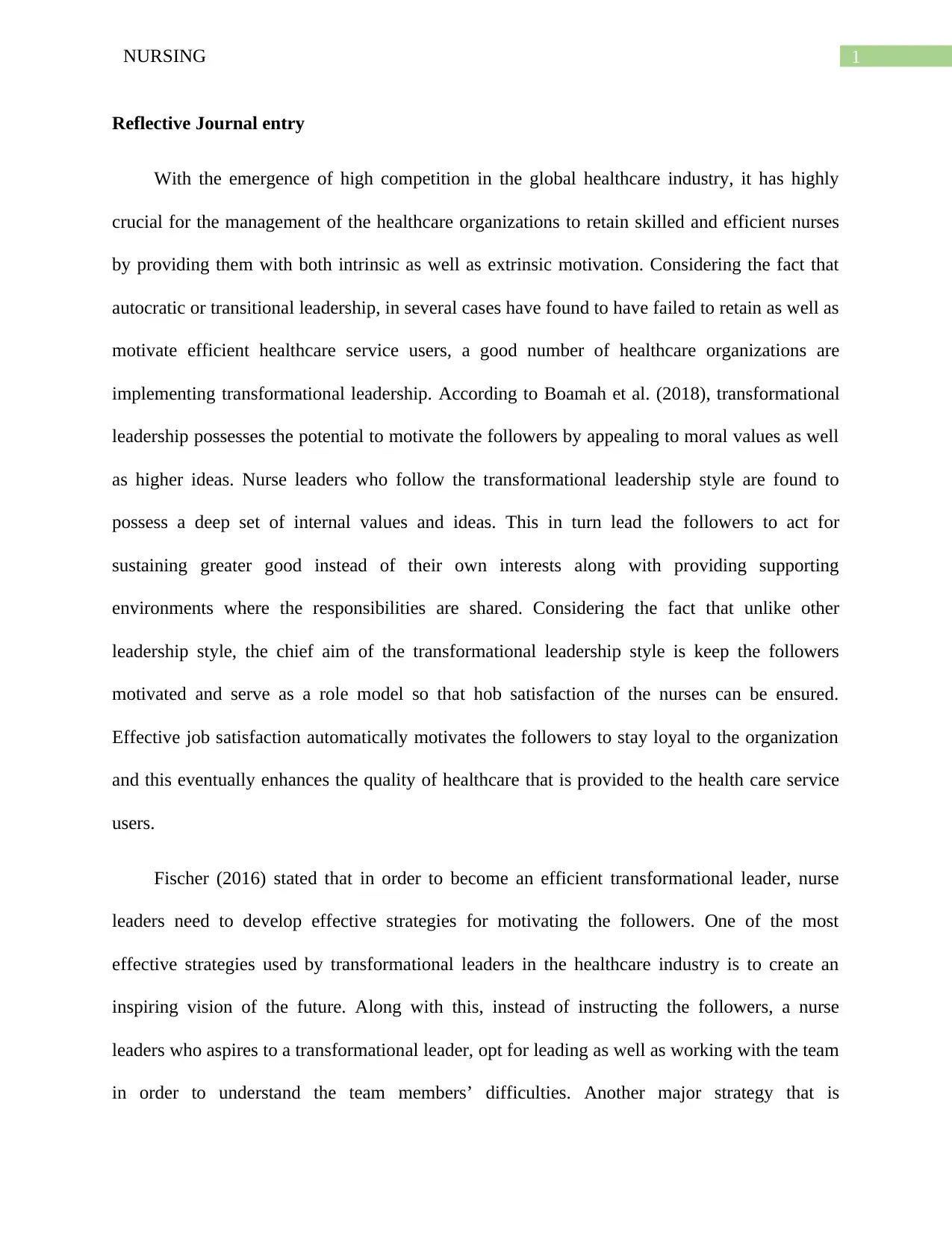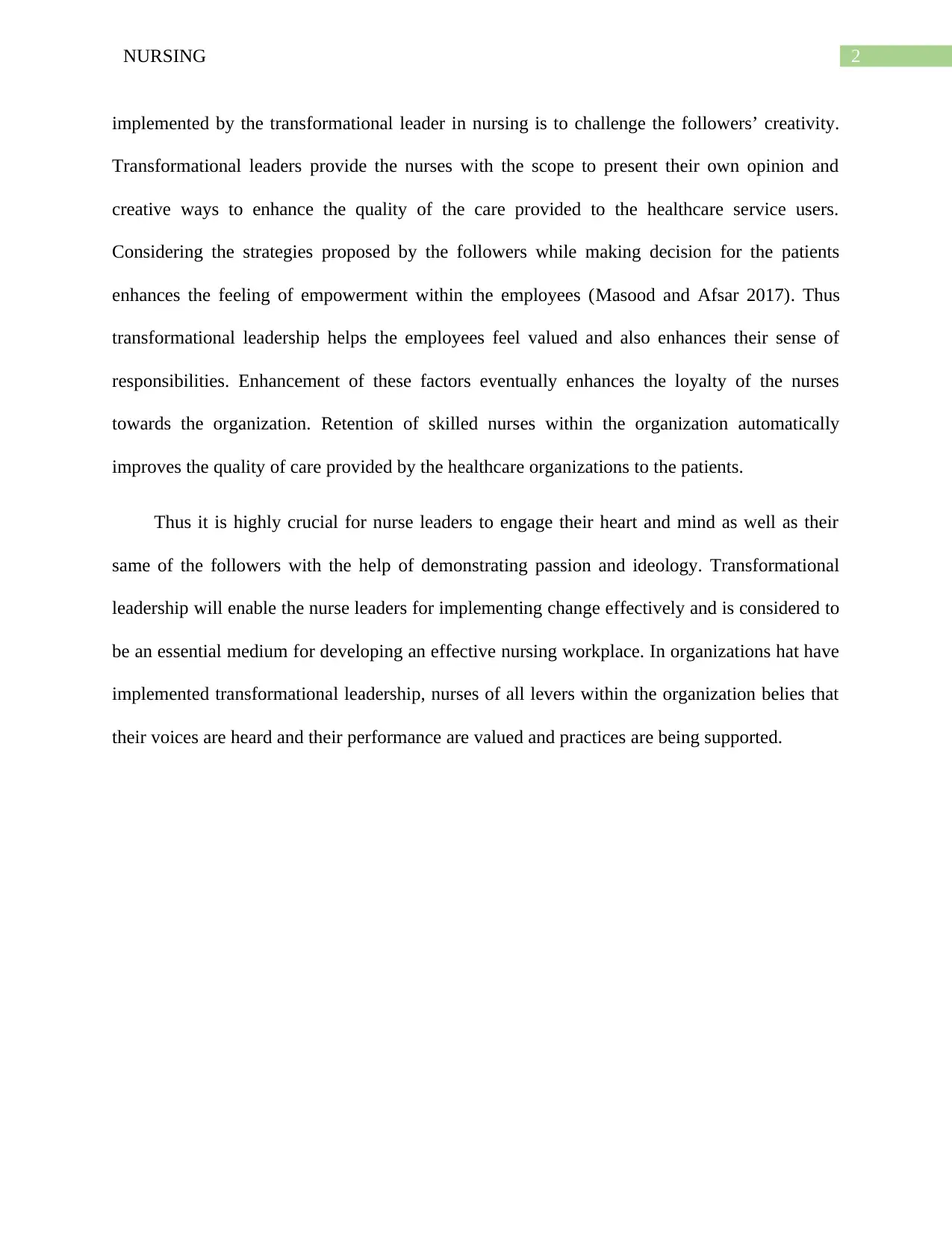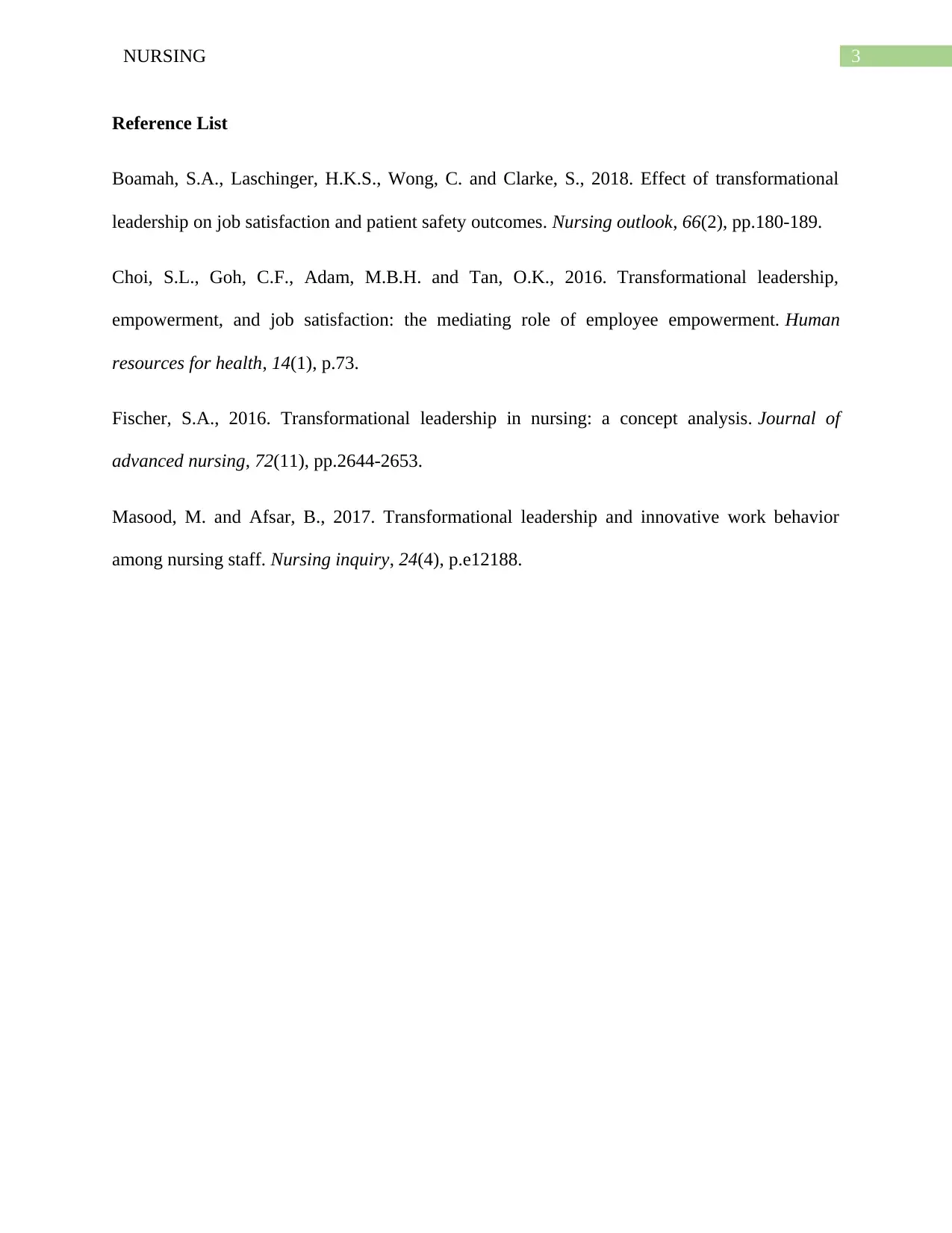Reflective Journal: Nursing Leadership and Healthcare Strategies
VerifiedAdded on 2022/08/18
|4
|708
|13
Journal and Reflective Writing
AI Summary
This reflective journal entry explores the crucial role of transformational leadership in the healthcare industry, particularly within nursing. It highlights the importance of retaining skilled nurses through intrinsic and extrinsic motivation, contrasting transformational leadership with autocratic styles. The journal emphasizes how transformational leaders motivate followers by appealing to moral values and fostering a supportive environment. It discusses key strategies employed by transformational nurse leaders, such as creating an inspiring vision, leading by example, and challenging creativity to enhance employee empowerment, job satisfaction, and loyalty. The entry underscores the positive impact of transformational leadership on the quality of care provided to patients and the development of an effective nursing workplace, referencing studies by Boamah et al. (2018), Fischer (2016), Choi et al. (2016), and Masood and Afsar (2017) to support its arguments.
1 out of 4











![[object Object]](/_next/static/media/star-bottom.7253800d.svg)